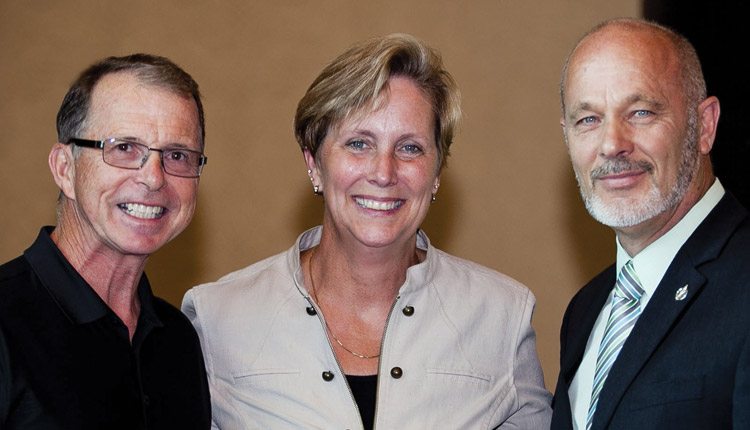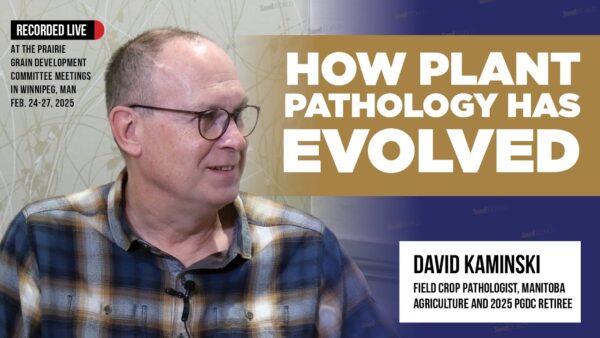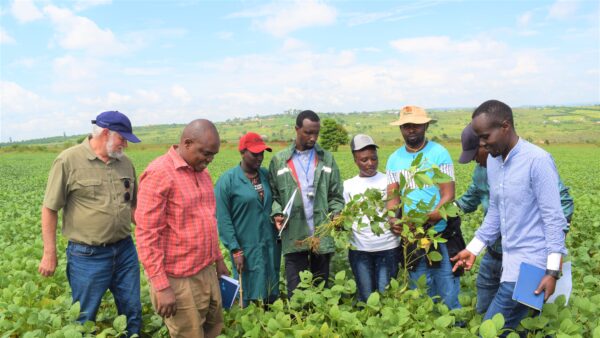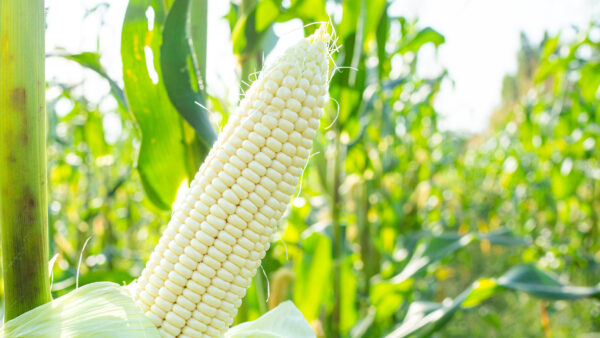At the Canadian Seed Trade Association’s 92nd Annual Meeting, industry leaders recognized achievements of the past year, discussed important issues and outlined a path forward for the year ahead.
_x000D_
The southernmost city in Canada played home to more than 220 seedsmen and women who came together to discuss business, network and help the industry forge ahead during the Canadian Seed Trade Association’s 92nd Annual Meeting, held July 12-14._x000D_
_x000D_
Dave Baute, who served as CSTA president for the past year, welcomed attendees to Windsor, Ont., during the opening general session._x000D_
_x000D_
Baute said it’s been “a milestone year” for CSTA as he noted some of the association’s accomplishments during the past year, as well as the challenges that need to be addressed._x000D_
_x000D_
One such accomplishment was the royal assent of the Agricultural Growth Act Feb. 27, which amended Canada’s Plant Breeders’ Rights Act. Almost immediately, new varieties of wheat, oats, flax and potatoes became available, Baute said._x000D_
_x000D_
On June 19, Canada formally ratified the 1991 Convention of the International Union for the Protection of New Varieties of Plants, tying the bow on this package. With this, “we have sent the message to the world that Canada is open for national and international investment,” Baute said._x000D_
_x000D_
He also mentioned that Agriculture and Agri-Food Canada’s announcement to update variety registration will help to ensure quality and create the predictability, flexibility and efficiency the seed industry needs to deliver new and innovative varieties to farmers._x000D_
_x000D_
“We drew on the expertise of our industry partners to form coalitions, and often led, to reach our goals,” Baute said, highlighting Partners in Innovation, which brought together 20 national organizations in support of amendments to Plant Breeders’ Rights. “At every opportunity, the ‘Partners’ set the record straight with policymakers on the benefits of this legislation.”_x000D_
_x000D_
Another coalition that CSTA was pivotal in creating (in 2012) is the Seed Applied Insecticide and Pollinator Health Value Chain Coalition — designed to maintain the highest standards for the use of treated seed._x000D_
_x000D_
Baute shared that CSTA worked with the Canadian Seed Growers’ Association to create a new stewardship plan that provides a one-stop resource for those involved with treated seed. In addition, CSTA is working with the Bee Health Round Table to implement a national action plan._x000D_
_x000D_
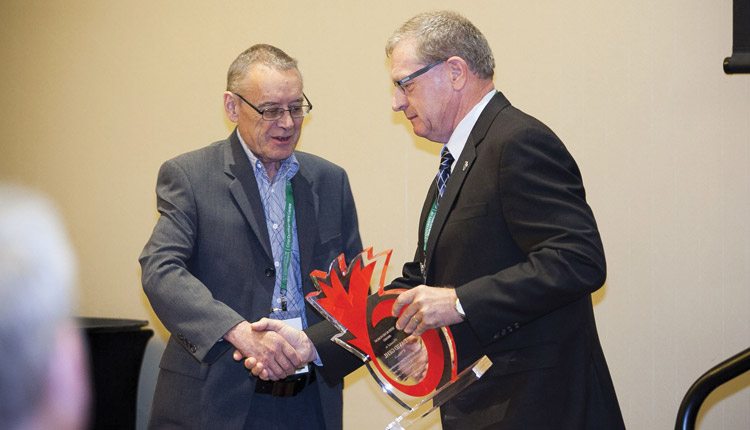
_x000D_
Farmers aware of the risk of unintended dust off during planting installed deflector kits and used improved seed lubricants to reduce the risk, Baute reported, noting that early numbers from Ontario, compiled by the Pest Management Regulatory Agency in 2015, show that the efforts are working and apiarists are seeing a dramatic reduction in overwintering losses._x000D_
_x000D_
Among these victories were also challenges, one of which is Ontario’s regulatory strategy to limit the use of neonicotinoid treated corn and soybean seed. Baute thanked Dave Carey, CSTA manager of policy initiatives, and Steve Denys of Pride Seeds for their hard work and tireless efforts in keeping up with the file and presenting the seed industry’s case for a more science-based approach._x000D_
_x000D_
Baute also noted the industry’s ability and need to tell its story. “The seed industry does so many great things for world’s population and the environment,” he says. “At the same time, we are facing increased public expectations for how we operate in relation to the environment, food production and safety, and the welfare of animals. It isn’t enough to says that we ‘feed the world.’”_x000D_
_x000D_
To help with this, two speakers were brought in to share ideas for turning this challenge into opportunity — Tim Burrack from the Truth About Trade and Technology and Allyson Perry from the Center for Food Integrity. Baute explained that the industry needs to think differently about how to change the conversation regarding agricultural technology, specifically seed treatments._x000D_
_x000D_
Baute also mentioned the need for increased investment in plant breeding and variety development. He shared that CSTA is leading a value chain process to explore ideas that capture value from investment._x000D_
_x000D_

_x000D_
Seeds of Change_x000D_
_x000D_
All of this progress, as well as the challenges, mean change for the industry._x000D_
_x000D_
“We must prepare for the changes that are coming,” Baute said. “CSTA has been talking with other organizations about the current and future environment for the seed sector and how our organizations might work better together to capture opportunities, meet challenges and improve services for members and customers.”_x000D_
_x000D_
Baute said this project is called the Seed Synergy Project and to keep an eye out for it in CSTA’s Trade Winds newsletter._x000D_
_x000D_
Additionally, with the tightening of federal dollars, CSTA leaders anticipate an expanded role for CSTA members as government’s role decreases. While this represents an opportunity, it also means change, Baute said._x000D_
_x000D_
Furthermore, there is an internal change in leadership with the retirement of Patty Townsend, who after more than 10 years of service to the industry stepped down as chief executive officer of CSTA July 31._x000D_
_x000D_
“We have seen huge advances in policies, regulations and the increased profile of the seed industry and its members during her tenure,” Baute said. “We wish Patty the best of luck in all her new endeavours.”_x000D_
_x000D_
Filling the role of executive director is Crosby Devitt. “His energy and passion will drive CSTA ahead as we work to make our association stronger,” Baute said._x000D_
_x000D_
As part of every CSTA annual meeting is the changing of the guard as board members who have completed their terms of service step down and new ones are installed. For more information about these changes, check out CSTA’s column on page 26._x000D_
_x000D_
In his closing remarks, Baute said: “It’s been a privilege for me to have represented CSTA this past year and to have voiced your interests with governments, stakeholders and the media. Our members are the heart of CSTA and none of our successes would have been possible without your continued support.”_x000D_
_x000D_
As Baute transitioned to past president, Scott Horner, general manager of HyTech Production Ltd. in Lethbridge, Alta., was elected CSTA president for 2015-16._x000D_
_x000D_
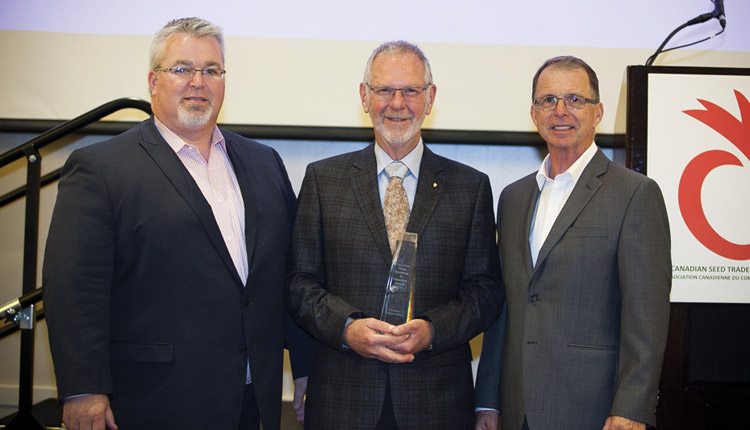
_x000D_
The Future_x000D_
_x000D_
Horner said it’s a privilege to follow in Baute’s footsteps and congratulated him on hosting such as successful meeting that drove engagement and was both informative and fun._x000D_
_x000D_
He mentioned the introduction and implementation of CSTA’s new work plans at this meeting, which outline committee actions and activities._x000D_
_x000D_
“These are agreed upon priorities within the committee and provide a pathway moving forward,” Horner said, noting that there might still be some fine-tuning to the process. “This means there’s one document that you can go to and find out what the committees are working on who is involved.”_x000D_
_x000D_
In talking about his role as president, Horner highlighted that CSTA represents 125 companies that work with more than 50 different crop kinds and are engaged in all production systems — organic, conventional and biotech._x000D_
_x000D_
“We range from small single-family seed growers to large multinational firms,” he said. “We are involved in all aspects of the seed industry, from plant breeding and research to production, and from conditioning, treating and packaging to marketing and international trade. The Canadian seed industry contributes more than $5.6 billion to the economy; seed exports are valued at $450 million and more than 57,000 Canadians are employed in the industry._x000D_
_x000D_
“Additionally, the value of seed purchased by Canadian farmers has grown from $1.39 billion in 2009 to more than $2 billion in 2013, nearly a 50 per cent increase in five years._x000D_
_x000D_
“It is estimated that nine out of every 10 bites of food taken by people around the world start with the planting of a seed. Seed is the driver of innovation that the world’s farmers will need to feed, fuel and clothe a global population that is expected to reach 9.3 billion in fewer than 40 years, while at the same time facing the challenges of climate change and competing demand for water, land and resources.”_x000D_
_x000D_
Horner said this information frames his perspective as he moves into the year as president of the association._x000D_
_x000D_
“My goal [as president] is to make tangible progress in improving the environment for the investment and innovation in our industry so that significant value creation can occur for our stakeholders,” Horner said. “A lot is happening to generate the opportunity for significant value creation in the seed industry but more needs to be done if we are to reach our true potential.”_x000D_
_x000D_
Horner outlined that the Canadian Wheat Board single-desk marketing monopoly was eliminated and changes to variety registration have been initiated. Additionally, the Agricultural Growth Act was passed into law and UPOV 91 was ratified._x000D_
_x000D_
“These changes have helped set the stage for significant growth in our industry,” Horner said, noting that positive change is already underway as demonstrated by two multimillion dollar investment announcements by member companies early in July._x000D_
_x000D_
However, Horner said more needs to happen if these types of investments are to be successful in building value and creating opportunity._x000D_
_x000D_
While it’s important to launch new traits, grow early corn and soybean breeding for Western Canada, discover innovative seed-applied technologies, increase investment in private breeding and drive demand from new end users, opportunity hinges in the regulatory environment._x000D_
_x000D_
“For new technology to take root, grow and flourish, there has to be a favourable environment,” Horner said. “There has to be regulatory support and intellectual property protection._x000D_
_x000D_
“These are two of our challenges and these challenges have to be addressed. We have a regulatory system that needs our support. It must be functional, understood and respected by society; it must evolve to keep up with the industry it serves; it must run efficiently; it must be flexible and forward-looking.”_x000D_
_x000D_
Horner referenced the fact that the president of CFIA and other government representatives spoke at CSTA’s 92nd Annual Meeting, something that’s not been common of past meetings._x000D_
_x000D_
“There is a new opportunity to influence the regulatory environment within which we operate,” Horner said. “We have a responsibility to seize this opportunity and create impactful change.”_x000D_
_x000D_
As such, Horner challenged members to engage with CSTA in a greater degree._x000D_
_x000D_
“Invest your time, your energy and your capital to help support CSTA in developing solutions to challenges and creating mechanisms to capture opportunity,” he said. “The results of your investment will pay dividends for your industry, and in turn your business.”_x000D_
_x000D_
_x000D_
Managing Industry Issues
_x000D_
At the Canadian Seed Trade Association’s 92nd Annual Meeting in Windsor, Ont., participants discussed a number of initiatives and issues, including biotechnology, seed-applied technologies and intellectual property.
_x000D_
Attendees heard from a diverse group of speakers. Pierre Patelle of CropLife Canada discussed Ontario’s pollinator activities; Nathalie Doré of Agriculture and Agri-Food Canada gave a presentation on Canada’s low-level presence policy; and Darrell Dziver, CSTA’s representative to the International Seed Federation’s Phytosanitary Committee, gave an update on the International Standards for Phytosanitary Measures.
_x000D_
The scope of information provided during the conference can’t be included in a single story, so be sure to check back in at germination.ca and issues to follow as the Germination editorial team will continue to track these and other “hot button” files throughout the year.


